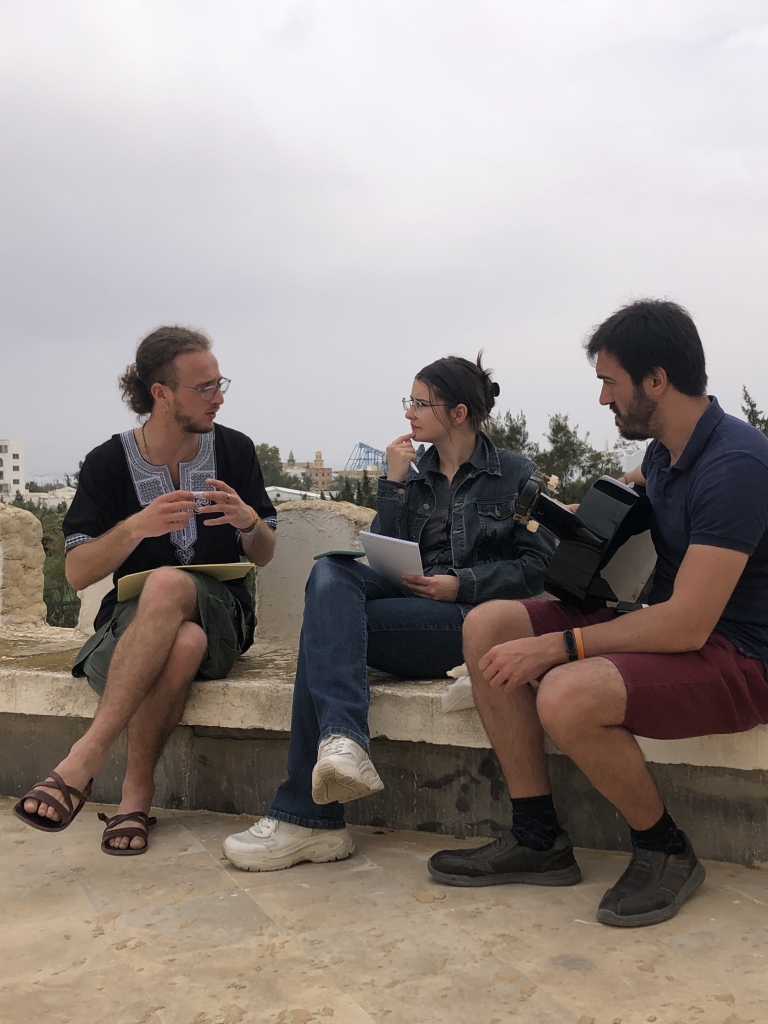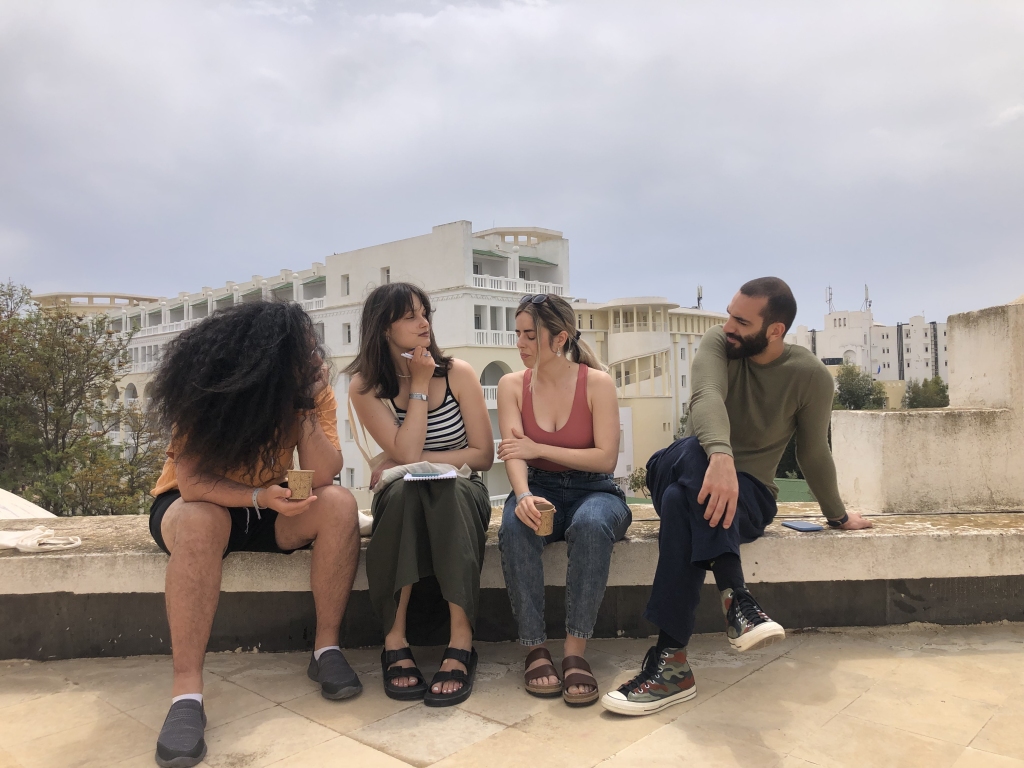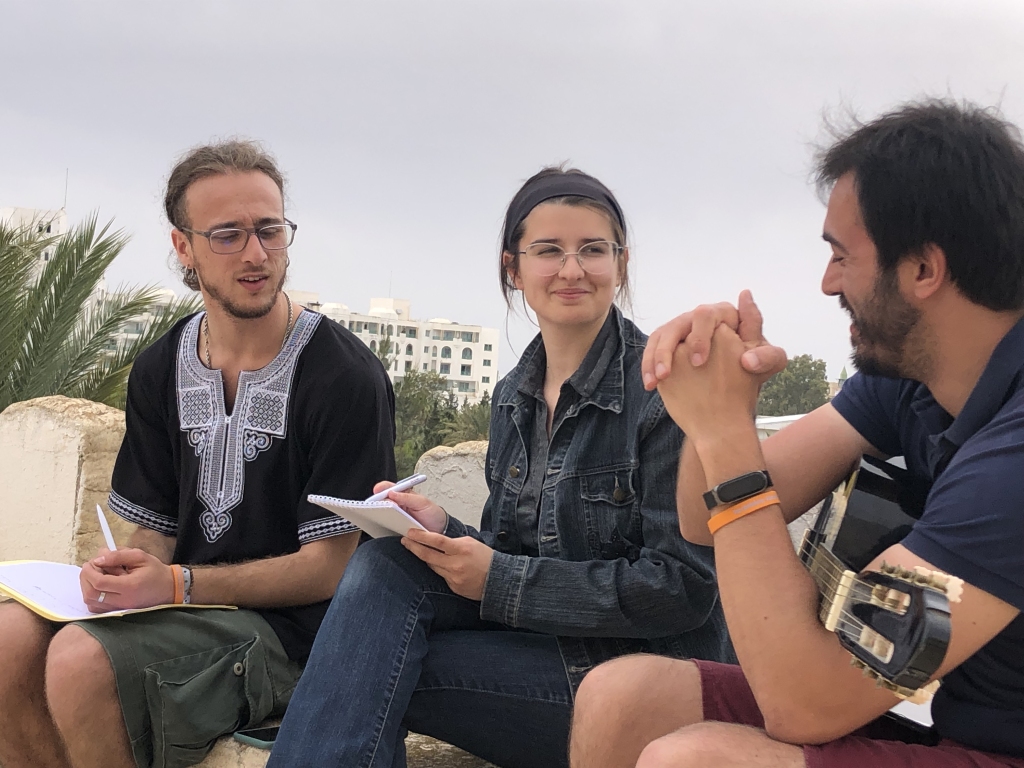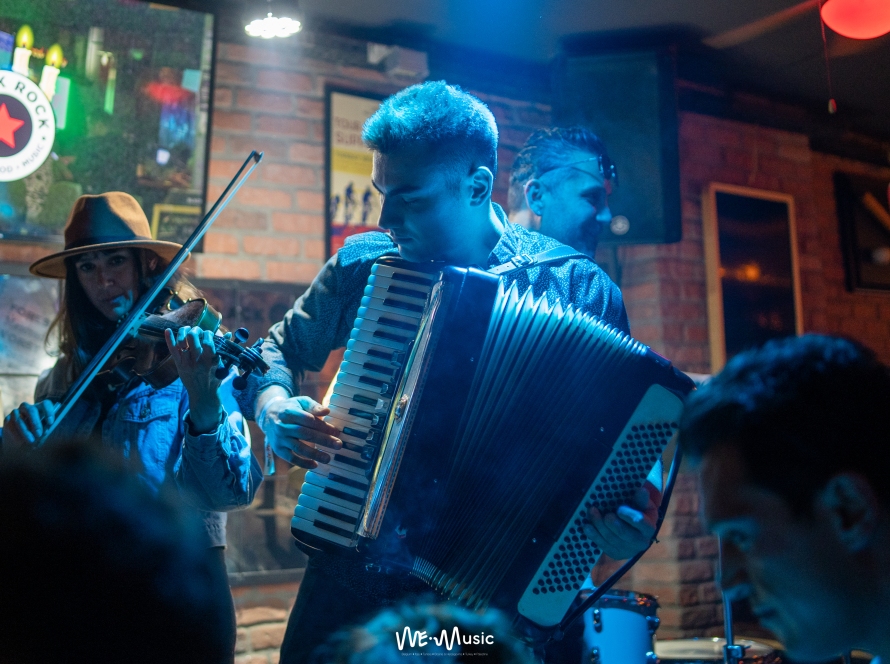Over the past seven days, young people from six different countries had an opportunity to take a part in an inspiring music project in an astonishing part of Tunisia, Hammamet. Throughout hangouts and sessions, we gained some beautiful memories and we decided to share some of them with you through this interview!

Q: How would you describe Tunisia in three words?
A: Beautiful, kind and friendly! – Riquens, Belgium
A: Beautiful, colorful and chaotic. – Neomi, Belgium
Q: How did the local food differ from the food in your country?
A: There were a lot of new things I’ve never tried before, spices and combinations of food but there are also other things I’m really interested to try! – Neomi, Belgium
Q: How would you describe each nationality?
A: Italians are on the easy going side, they all have a refreshing energy. They are the ones you can have a good laugh with! I find Belgians to be open minded and have wide visions and perspectives on different things. As a Tunisian, I find Turkish people very similar and close to me since we have similar cultures, being around them feels very warm and heartfelt and they are easy to interact with! Palestinians are very gentle and kind people and Bosnians are very interesting so I would like to learn more about their culture! – Farah, Tunisia
Q: What was the most memorable experience you’ve had?
A: Just being around everyone and working in groups. It was very inspiring. – Arij, Tunisia

Q: How would you describe Tunisia in three words?
A: New, amazing, challenging! – Nejra, Bosnia and Herzegovina
A: Exotic, warm and unexpected! – Duško, Bosnia and Herzegovina
Q: What was the most challenging experience for you?
A: For me it was singing because I don’t usually sing so it was definitely challenging and it made me go out of my comfort zone, but it was a beautiful experience! – Nejra, Bosnia and Herzegovina
Q: What was the best experience for you on this project?
A: For me it was listening to Qanun, I’ve never heard about it nor seen a performance. That’s probably the best thing! – Bartolomeo, Italy
Q: How did local food differ from the food in your country?
A: Oh, very, very spicy! They also eat a lot of pasta, like Italians, but I prefer pasta in Italy. – Jurgen, Italy
Q: What was the most memorable experience for you?
A: At some point everyone left and I was with three Tunisian people in Tunis. We started to walk and we went to the seaside. We had a great view and they shared more about Tunisia. We sat there, took some videos and had fun. That was a great experience for me. – Hazal, Turkey
Q: What was one a funny or embarrassing moment?
A: When we were waiting for a bus, some guy was talking to me on Tunisian. I kept telling him “No, no, I don’t speak Tunisian” but he didn’t stop. I kept telling him that I speak English but he still kept going. Last time that I told him that I don’t speak tunisian or French, he turned to me and said “I’m not talking to you, I’m talking to my friend over there!”. I kept apologizing later because I was embarrassed. – Serra, Turkey

Q: What was the best part of this trip for you?
A: The intercultural night we had. It was amazing. – Danya, Palestine
A: For me as well, intercultural night! Also, touring in the Sidi Bou Said. – Rawan, Palestine
Q: Was there something that inspired you?
A: In one of the sessions we had, everyone had the opportunity to voice their opinions. For one particular problem we all had a different solution and to me that was inspiring because it was nice to see other people’s way of thinking but still holding onto my own. There were 35 people and 35 ways to do it. I really liked that. – Mimi, Palestine
This trip to Tunisia was, for each and every one of the participants, a unique experience. Opportunities like these are very important for young people and artists, as they most certainly make an impact and difference, fulfilling their lives with experiences, stories and new friendships.
Maja Buha and Tamara Jovičić, Bosnia and Herzegovina



